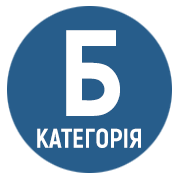HUMANITY IN THE CONTEXT OF SOCIAL COGNITION OF UKRAINIAN EDUCATIONAL REALITIES
DOI:
https://doi.org/10.24919/2522-4700.43.18Keywords:
humanity, social cognition, education, philosophy of education, G. Skovoroda, I. Franko, N. Kobrynska, happiness, humanities, fictionAbstract
The purpose of the article is to analyze the problem of humanity as a key and valuable basis for the existence and development of education. Social cognition of the current state of education serves as a methodological tool for identifying shortcomings in the field of education and at the same time helps to outline trends and prospects for the development of education as a comprehensive social phenomenon. Methodology. The means to achieve this goal are the principles and categories of dialectics, philosophical anthropology, value and socio-cultural approach, phenomenological and hermeneutic discourses, methods of analysis and synthesis, comparative studies. Scientific novelty. Social realities in modern Ukrainian society can be defined as borderline and crisis, which appear to require special analysis to identify "painful" phenomena in education and the humanities. Spiritual and anthropological values are considered as semantic and core through the prism of the ideas of Hryhoriy Skovoroda, Ivan Franko, Natalia Kobrynska. Education must occupy a prominent place in public life and become an integral basis for its progressive spiritual progress. At the same time, the main goal of education should be to show humanity through the humanities in order to achieve happiness for each individual. Conclusions. Crisis and "painful" phenomena in education are generated by the same characteristics of social status. The dialectical relationship between society and culture through education and, conversely, education through the epidemic in the spiritual and humanitarian component of society and the modern civilizational and cultural situation requires immediate intervention, but not constant reforms that level all previous cultural and educational achievements rather than creating a new school and education that does not contribute to the enlightenment of the soul of every person, its manifestation, her image of creation. The indicative trends in the development of education should be spirituality, philosophy, philosophy of education, the pursuit of knowledge, not the exchange of information, the achievement of happiness by each individual through education, namely humanitarian education, the formation of conditions by the state to ensure proper education and realization free, full, educated and happy Man. It is necessary to work on the implementation of such ideas and implement them, it is necessary to build a real education as a center of humanity, culture and spirituality, the realm of science and technology.
References
Біленко Тетяна. Феномен слова в українських реаліях: (Філос. аспект): Монографія. К. : Знання України, 2003. 432 с.
Вербицька Л. Людина і природа в науковій концепції Івана Франка. 2018. URL.: https://md-eksperiment.org/post/20180726-lyudina-i-priroda
Возняк В.С. Співвідношення розсудку і розуму як філософсько-педагогічна проблема: Монографія / В.С. Возняк. Дрогобич : Редакційно-видавничий відділ Дрогобицького державного педагогічного університету імені Івана Франка, 2008. 357 с.
Євдокимов В.І., Микитюк О.М. Г.С. Сковорода про виховання молоді. Педагогіка і психологія: збірник наукових праць: присвяч. 275-й річниці від дня народж. Г. Сковороди / М-во освіти України, Харк. держ. пед. ун-т ім. Г.С. Сковороди. Випуск 6. Харків, 1998. С. 3‒4.
Кобринська Н.І. Вибрані твори. К. : Дніпро, 1980. 446 с.
Козлов Є Хочеш бути щасливим ‒ будь ним. Університетська кафедра. 2012. № 1. С. 68‒78. URL.: http://nbuv.gov.ua/UJRN/Ukaf_2012_1-9
Мовчан В.С. Історія і теорія етики. Курс лекцій. Навч. посібник / В.С. Мовчан. Дрогобич : Коло, 2003. 512 с.
Навчальний посібник з курсу «Філософія освіти» для осіб, що навчаються в магістратурі за спеціальністю «Педагогіка вищої школи». / Т.Н. Кучера, Л.І. Насонова, В.В. Дейнека. Харків : ХНМУ, 2015. 63 с.
Нова українська школа. Концептуальні засади реформування середньої школи / За заг. ред. Михайла Грищенка. Ухвалений рішенням колегії МОН 27/10/2016.URL:http://www.https://mon.gov.ua/storage/app/media/zagalna%20serednya/nova-ukrainska-shkola-compressed.pdf
Попович М.В. Діалог культур і раціональність // Історія філософії: Досвід теоретичної саморефлексії. К. : Укр. центр дух. культури, 1998. С. 69-71.
Сковорода Г. Розмова, що називається Алфавіт, або Буквар миру. Пізнай в собі людину / Пер. М. Кашуба. Пер. поезії В. Войтович. Львів : Світ, 1995. 528 с.
Соціальна філософія: Короткий Енциклопедичний Словник / Загальна редакція і укладання: В.П. Андрущенко, М.І. Горлач. Київ-Харків : ВМП «Рубікон», 1997. 480 с.
Фоменко Л., Янко Ж. Концепт «ненормального» в философии М. Фуко. Людинознавчі студії : збірник наукових праць Дрогобицького державного педагогічного університету імені Івана Франка. Серія «Філософія» / ред. кол. Н. Скотна (головний редактор) та ін. Дрогобич : Видавничий дім «Гельветика», 2021. Випуск 42. С. 317‒328.
Франко, І. Мислі о еволюції в історії людськості. Повне зібрання творів у 50-ти томах. Т. 45. К.: Наукова думка, 1986. С. 76‒139.
Фуко Мишель. Герменевтика субъекта. Курс лекций в Коллеж де Франс, 1982. Выдержки (перев. с франц. И.И. Звонаревой) // Социологос / Сост, общ.ред. и предисл. В.В. Винокурова, А.Ф. Филиппова. М. : Прогресс, 1991. С. 284‒311.
Чижевський Д. Філософія Г.С. Сковороди. Філософські твори: в 4-х тт. Т.1. [Під ред.В. Лісового]. К. : Смолоскип, 2005. С. 163‒388.


